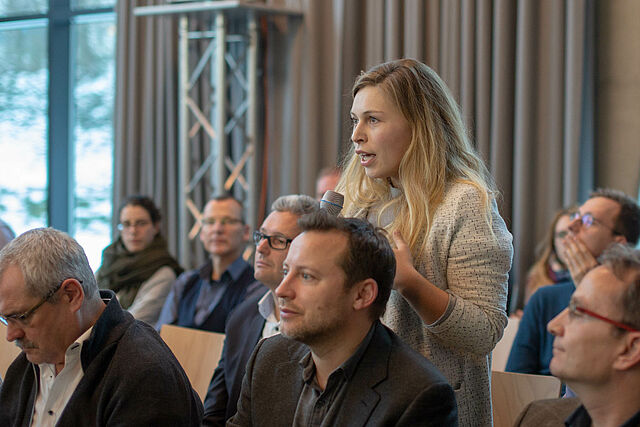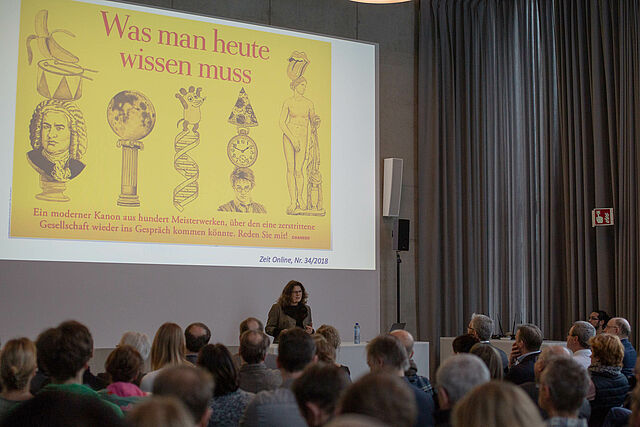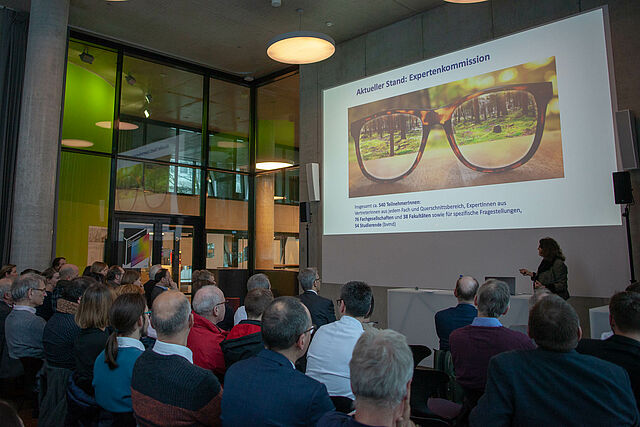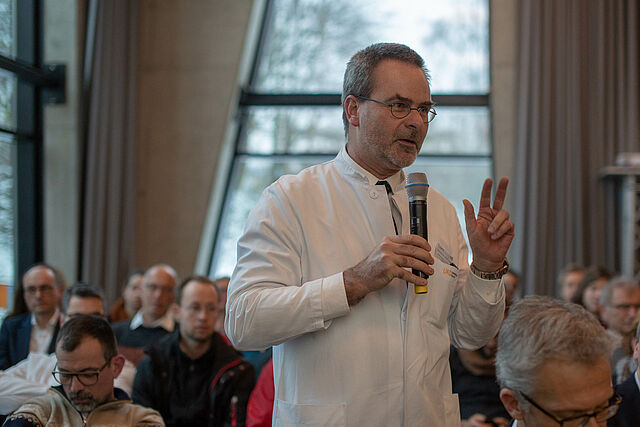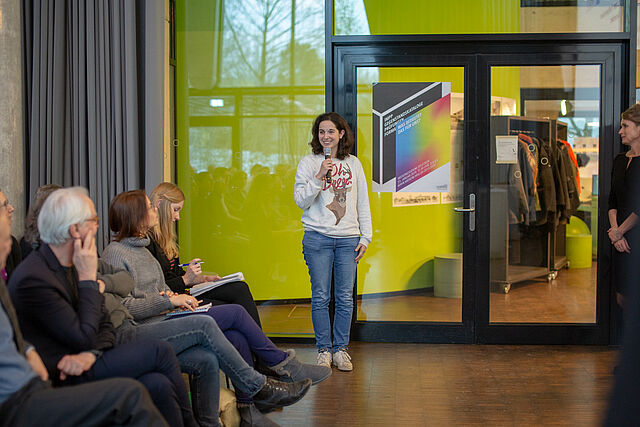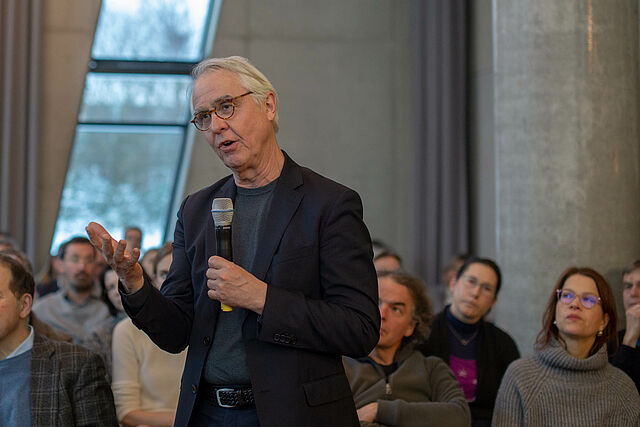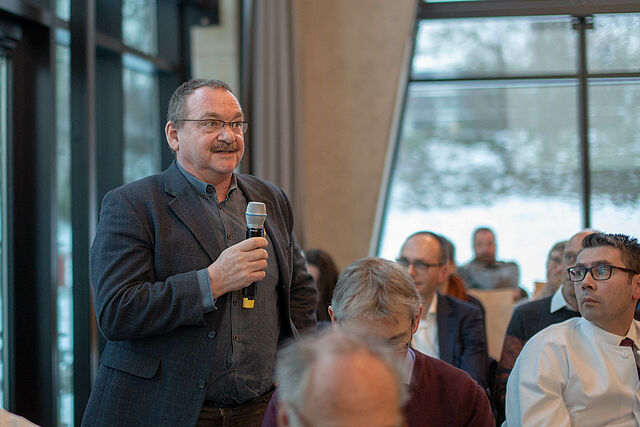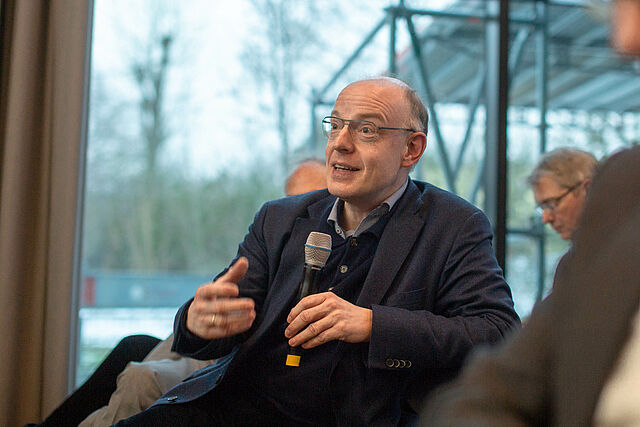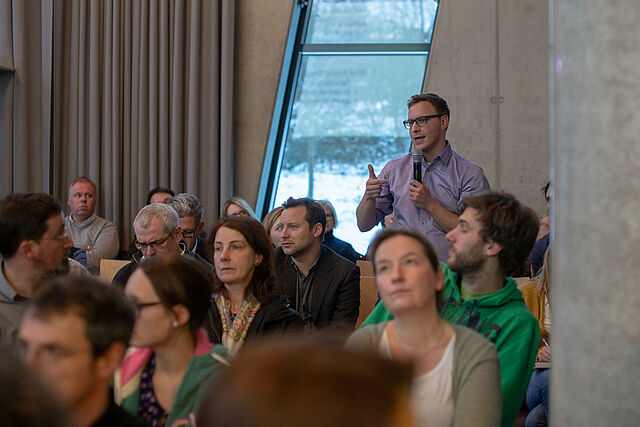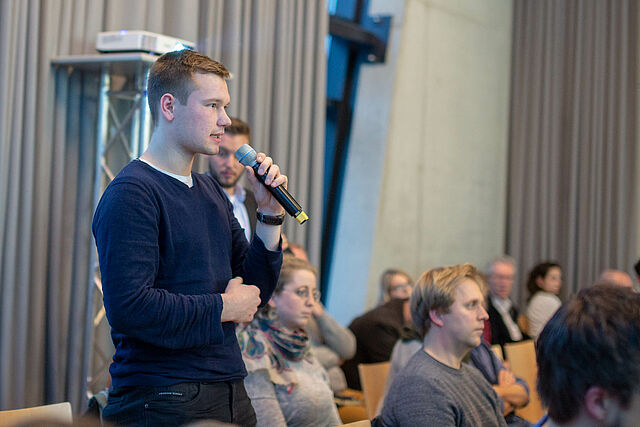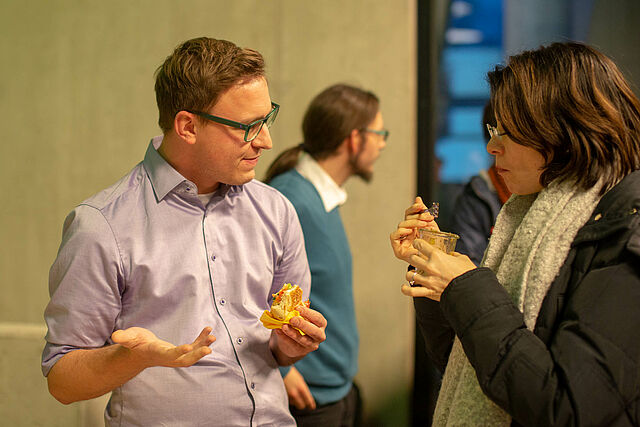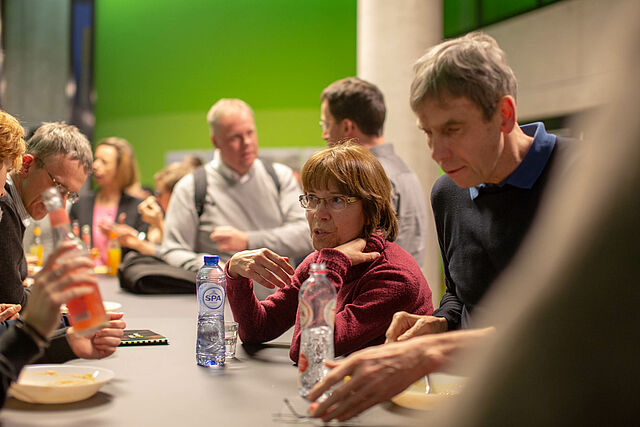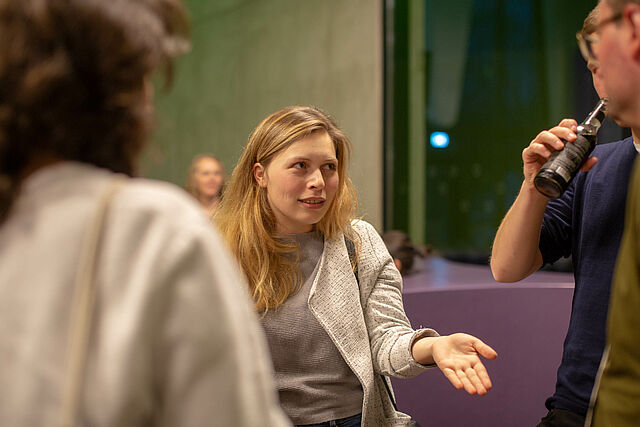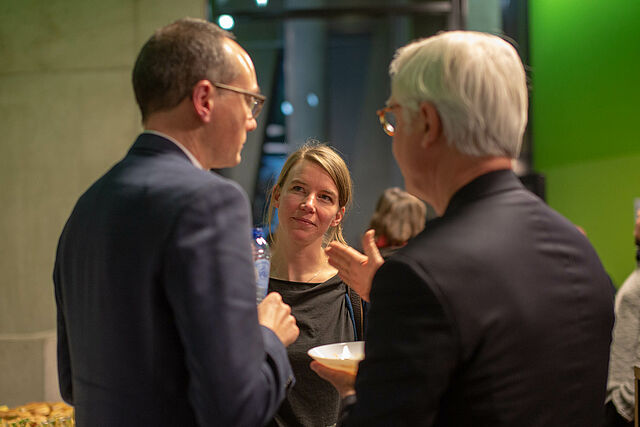Competence-Oriented Subject Catalogs - What Does that Mean for us?
Medizinstudium 2013/2020, 23.01.2019, 16:30
For the fourth time, faculty, students and staff of the Faculty of Medicine came together on Wednesday, January 23, 2019, as part of the event series "Medical Studies 2013/2020".
As always, the exchange event took place in the O.A.S.E. and this time it was linked to the kick-off event in May 2017. At that time, the focus was on the effects of the freshly adopted "Masterplan Medizinstudium 2020"; now it was once again on the politically initiated developments in medical studies and their effects on our faculty:
The development of competence-oriented subject catalogs and new state exams by the IMPP.
The dean, Prof. Dr. Nikolaj Klöcker, opened the event and emphasized how important it is to face these developments together.
![[Translate to English:] Prof. Dr. Nikolaj Klöcker, Dekan der Medizinischen Fakultät](/fileadmin/_processed_/9/1/csm_Bild-11_web_28d134a69b.jpg)
Finally, as a guest speaker, the director of the IMPP, Prof. Dr. Jana Jünger, reported to the attendees "first-hand" about the plans of the IMPP. She emphasized right at the beginning that she wanted to shed some more light on the "black box" that the IMPP and its plans around the further development of the subject catalogs have represented for many medical faculties so far.
She began by discussing the need for reform in current medical training. The IMPP's goal, she said, was to make the subject catalogs more competency-oriented by redesigning the state examinations to take account of new topics such as digitalization and economization in medicine. She explained the complex structure of the working groups involved in the process of developing a new examination concept and the importance of the commitment of the representatives of the professional societies and faculties involved. The director of the IMPP emphasized the advantages of the joint further development of subject catalogs and NKLM, which promoted cooperation and understanding between clinical and preclinical subjects as well as between students and lecturers.
Afterwards, the faculty members present were given the opportunity to relate to the site and ask Prof. Dr. Jünger specific questions. Once again, it became apparent that the Düsseldorf curriculum in medicine, with its competence orientation and close integration of theory and practice, has already taken the right path. However, in redesigning the state examinations, compromises will have to be made between standard courses of study and model courses of study. Prof. Dr. Jünger emphasized that it is important to tackle as many changes as possible now and not to wait until the new Medical Licensing Regulations are passed. No one should fear a change in the examination system "from one day to the next". However, the first changes are already being gradually introduced by the IMPP.
After this informative exchange, the participants were able to continue their discussions over warm soup and drinks in the foyer of the O.A.S.E.






![[Translate to English:] Prof. Dr. Jana Jünger](/fileadmin/_processed_/2/b/csm_Bild-29_web_1159c933a9.jpg)
